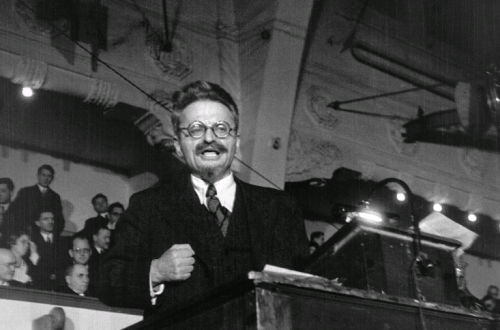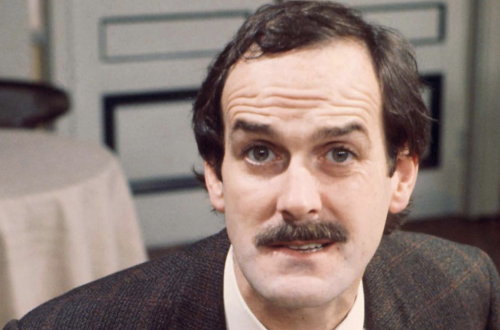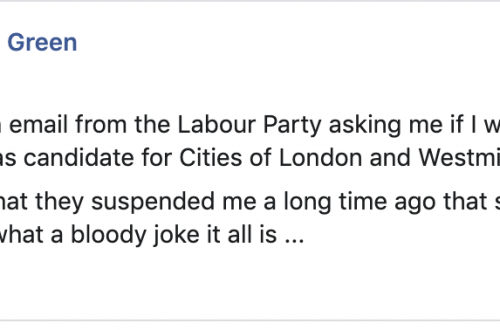Tom Holland’s frank and forensic analysis of debates (past and present) within Islam is now available online. He doesn’t shy away from finding connections between episodes in the life of Muhammad and the barbaric actions of today’s extremists. However he points out that those who insist on the most ruthless and rigid interpretation of Islam (whether they are Salafists or counterjihadists) as the truest, most original form of the faith, overlook just how little evidence there is for some of the more troubling aspects of Muhammad’s biography.
He discusses the different responses inspired by the tradition that Aisha was nine when her marriage was consummated. The accusation that Muhammed was a paedophile ‘festers’ in anti-Islamic discourse online – and is used as a justification for raping children by extremists. Other Muslims have no wish to exploit her story in this way; they may point out that marriage at a young age was more common in the past, and some argue that the evidence of the relevant hadiths is unreliable. Of course, as Tom Holland points out, if you pull out one strand of the fabric of Islamic tradition, others may follow.
It’s commonplace to hear that shortcomings in other cultures (homophobia for example) are in fact the fault of the West, a legacy of colonialism. Tom Holland offers an interesting variation on this theme when he argues that Western ideas about the nature of history and biography may have encouraged a more literal understanding of the recorded career of Mohammed; he compares this with the more symbolic or mystical approach to the Prophet’s life which apparently prevailed in earlier years.
Holland concludes by hoping that a Western form of Islam emerges, one which can assimilate the findings of scholars and historians much as Christianity has done. The urge to encourage a more liberal and secular Islam is shared by many, but it’s not always easy to know how best this can be achieved. Reading about Scotland Yard commander MakChishty’s intervention into the debate, his assertion that we needed to delve into the private life of Muslims, put me in mind of a passage from Milton’s Areopagitica.
and evill we know in the field of this World grow up together almost inseparably; and the knowledge of good is so involv’d and interwoven with the knowledge of evill, and in so many cunning resemblances hardly to be discern’d, that those confused seeds which were impos’d on Psyche as an incessant labour to cull out, and sort asunder, were not more intermixt.
Here’s a reminder of some of Chishty’s points:
Scotland Yard commander Mak Chishty said children aged five had voiced opposition to marking Christmas, branding it as “haram” – forbidden by Islam. He also warned that there was no end in sight to the parade of British Muslims, some 700 so far, being lured from their bedrooms to Syria by Islamic State (Isis) propaganda.
In an interview with the Guardian, Chishty said there was now a need for “a move into the private space” of Muslims to spot views that could show the beginning of radicalisation far earlier. He said this could be shown by subtle changes in behaviour, such as shunning certain shops, citing the example of Marks & Spencer, which could be because the store is sometimes mistakenly perceived to be Jewish-owned.
Sometimes the prohibition on celebrating Christmas can manifest itself as a deep disdain for the kuffar. But this is presumably not always the case, and it’s easy to see why Muslims might react a bit defensively to that element of Chishty’s statement, or to the suggestion that someone who stopped shopping at M&S might be in danger of radicalisation. There were some easy pickings here for those who like to feel aggrieved:
Parents can struggle to identify whether or not their children are behaving like “normal teenagers”, or falling into depression. Many symptoms of depression, such as isolation, antisocial or aggressive habits, and a change in sleeping or eating patterns, are typical for teenagers undergoing difficult and complex hormonal changes, only for Muslim children, these are demonised.
It’s frustrating that Chishty’s comments have enabled some righteous indignation from those whose ‘normative’ beliefs probably go way beyond not drinking and not celebrating Christmas. But it’s worth considering the issue of disproportionate or selective scrutiny, and its impact on even distinctly non-radical Muslims.
Even those who might be termed Islamists don’t generally support the Saudi prohibition on women drivers. Yet today it’s been announced that children whose mothers drive will be banned from the schools of a Chasidic sect in London. On the other hand it could be countered that the Jewish community is exposing and criticising such practices without any outside prompting – which is what Chishty was trying to promote within his own community. Here he sought to clarify his position:
“I did not say police should move into people’s private space. I am making a personal plea to all Muslims that we stand together to tackle and condemn extremism at every point. Indicators of people having been radicalised can be extremely subtle and only those closest to them are able to spot the early signs,” Mr Chishty said.
Of course many Muslims do stand up to extremism in their ranks. Here is just one interesting story, about how a French mosque used the country’s secularist laws to rid itself of a troublesome preacher:
A court convicted Faouzi Saidi, 51, of breaking France’s century-old “secularity” law by trying to disrupt services at the mosque at Oullins in the Lyon suburbs. He was fined €1,000 with another €500 fine suspended.
The 1905 law, which creates a barrier between the French state and all forms of religion, has sometimes been accused of feeding Islamophobia. It has provided justification for recent laws that forbid full-face veils on French streets and ban Islamic headscarves and other religious symbols in French state schools.
However, two lesser-known clauses of the same law guarantee the right of worship in France.
For the first time in French legal history, a mosque used those clauses in February to seek protection from Saidi, a follower of the radical Salafist version of Islam, who was accused of holding unauthorised prayer meetings, placing his hands over his ears during official services and organising a menacing bodyguard of young men.
In a delayed ruling, the Lyons court found him guilty.
Going back to Tom Holland’s aspiration for a ‘clearly Western form of Islam’ – this alliance between the secular authorities and anti-extremist Muslims in France seems like a small, but promising, step in the right direction.
“We’re paying attention to everything now,” said Belhay, who runs the mosque association. “I think other mosques are doing so, too.”


